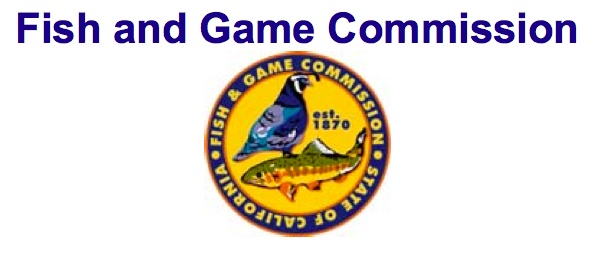Depature From Fish And Game Commission Hunting Advocate A Concern
News of longest tenured-member Jim Kellogg’s late December retirement from the five-member California Fish and Game Commission flew mostly under the radar, but over the weekend Peter Fimrite of the San Francisco Chronicle provided a fanastic detailed breakdown of Kellogg’s sudden exit and the potential impact it will have on the state’s hardcore anglers and especially hunters.
Fimrite’s report is a great read and paints Kellogg as one of the remaining few members of the board with a bonafide passion for hunting, creating the fear that hunters will get the short shrift in the future with a perceived commission group more concerned about conservation – and I for one don’t dismiss that as it surely is vital as wel, but with a balanced approach – than supporting the state’s sportsmen and -women. That was where Kellogg presumably served as the biggest (only?) true ally for hunters and anglers.
Here’s Fimrite:
Such a move may, observers say, complete the transformation of the commission from an organization that advocates for fishing and hunting to one that safeguards endangered species, preserves habitat and protects California’s top predators from slaughter.
But it won’t happen without a fight. While environmentalists say they are finally getting a fair shake in the high-stakes political game of wildlife management, advocates for outdoor sports fear they have lost their voice and that the role they have played in the protection of species is being forgotten.
The five-member commission, whose job is to recommend policies to the California Department of Fish and Wildlife, has been wading through divisive issues that could profoundly impact the future of the state, including what to do about diminishing salmon populations, sick sea lions and disappearing sea otters.
How California responds to growing numbers of wolves, coyotes and mountain lions is a central battle. The question is whether the predators should be tolerated or encouraged — or driven away by guard dogs or gunned down when they get too close to people or livestock.
Historically, the commission has been made up almost entirely of hunters and fishermen, but that focus has changed in the past several years.
Just what that means for the future of outdoor sports in the state remains to be seen. But the ever-changing commission does appear to be lacking Kellogg-types with a passion for hunting.
More from Fimrite:
But it was the resignation of Kellogg, who often teamed up with Sutton and Richards, that was viewed by many as the end of the line for the hunting and fishing coalition on the commission.
“I’m leaving pretty much out of frustration,” Kellogg said in an interview. He had been on the board for 14 years when he retired Dec. 31, the longest-serving member of the commission.
“I’m just tired of being the only one fighting the fight for the hunters and fishers,” he said. “The first 12 years I won most of the battles, and the last couple of years I lost almost every battle.”
The changes on the commission are an illustration of a statewide phenomenon. Californians, more than ever, regard wildlife, including apex predators, as a valuable part of the ecosystem instead of as food or vermin.
Chuck Bonham, the director of the Department of Fish and Wildlife, says he is committed to embracing science-based wildlife and ecosystem management while preserving the history and traditions associated with hunting and fishing.
Clearly, though, there has been a movement away from those traditions. The transformation became vivid in 2012 when then-Assemblyman Jared Huffman of San Rafael, who has since been elected to Congress, introduced a bill to change the name of the department that has managed fishing and hunting in California since 1872 from “Fish and Game” to “Fish and Wildlife.”
It was clear that Kellogg was fighting for hunters, and anytime a community that faces constant scrutiny in California loses a voice like Kellogg’s, it’s a big loss.




